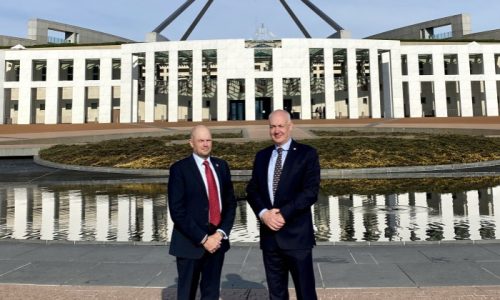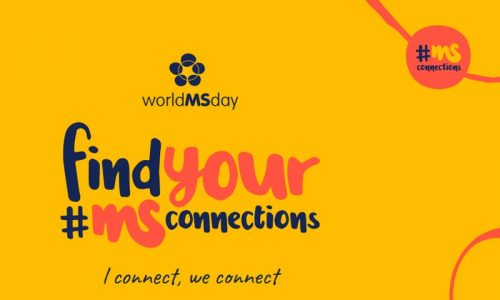Two thirds of people living with MS experience loneliness.
A staggering two thirds of people living with multiple sclerosis (MS) – equating to 17,000 Australians – admit to facing loneliness and isolation as a result of their MS, due to the stigma, limitations on work and impact on relationships.1 Australians are therefore being urged today, on World MS Day, to reach out and connect with those they know living with MS and help counter loneliness and minimise potential for this to exacerbate or negatively impact their condition.
The World MS Day ‘Connections’ theme (2020-2022) seeks to raise awareness of the importance of social support networks to help address the social barriers people living with MS face.
A recent study found that when those living with MS are better connected with loved ones, they have improved mental health, better quality of life, and ability to perform movements such as balancing, walking and standing.2
Currently over 25,600 Australians live with MS and, with an average age of diagnosis of between 20-40, many are managing major milestones in their lives – careers, relationships, starting or adding to families and buying their own homes.3
MS is a long-term disease affecting the central nervous system (brain and spinal cord) and is the most common acquired chronic neurological disease diagnosed in young adults.3
Connecting with Family and Friends Animation
MS Australia has launched an educational resource to mark World MS Day 2021, which presents 40-year-old Sonia Marcon’s experiences, who was diagnosed with MS as she graduated from university at just 21. The animated resource highlights the importance of support networks for people living with MS.
“Recent times have been isolating for everyone and having a chronic illness can leave you feeling very lonely. It’s important to stay connected with the people who understand and become part of your circle of support – if you share your symptoms, challenges and concerns with family and friends, you’ll give them a window into your world,” explains Sonia.
The need for active support resonates strongly with Emily Petricola (40), an Australian para cyclist living with MS and training for the upcoming Paralympics in Tokyo this August. For Emily, her ability to manage her MS as an elite athlete and reach her full potential would not be possible without the support from her family, friends, and network.

Emily Petricola, Australian para cyclist living with MS and training for the upcoming Paralympics in Tokyo this August.
Emily was diagnosed with MS in 2007. She lives with constant fatigue, overheating, tremors in her arms and legs, foot drop on her left side, which she manages alongside a rigorous training program.
“In the first few years of my diagnosis, there was a lot of me just pretending that everything was fine. The reality was I was in a bit of denial, but also quite depressed about it. Life can be very lonely as an athlete – but it can be even harder with when you have MS,” says Emily.
“When you go through a life-changing illness you realise quickly how important the people around you are. I’ve come to appreciate how lucky I am, as it is no easy thing to support someone with an illness that is invisible to most. My family and friends have consistently kept me afloat and moving forward.”
A study underway by La Trobe University, University of Sydney and University of New South Wales is looking to understand how Australians living with chronic conditions, including MS, manage feelings of loneliness.
“It turns out loneliness is much more than a problem that individuals can solve for themselves; it is an issue that requires a social or community-based solution,” explains Karen Willis, Professor in Allied Health Research at La Trobe University.
“Having the right support can change everything and World MS Day is the perfect reminder for Australians to reach out to those in their wider community,” explains Professor Willis.
“MS touches many of us. It can affect people very differently but for all its life changing. This year’s World MS Day is an important initiative to ensure the MS community is supported, heard and connected. MS Australia is taking on the impact of social isolation and loneliness at such a crucial time” says Rohan Greenland, Chief Executive Officer of MS Australia.
World MS Day brings the global MS community together to share stories, raise awareness and connect with those affected by MS. The MS International Federation (MSIF) and MS Australia is encouraging everyone to participate to create positive change in the lives of the more than 2.8 million people affected by MS around the world.
To find out more about World MS Day 2021, click here.






